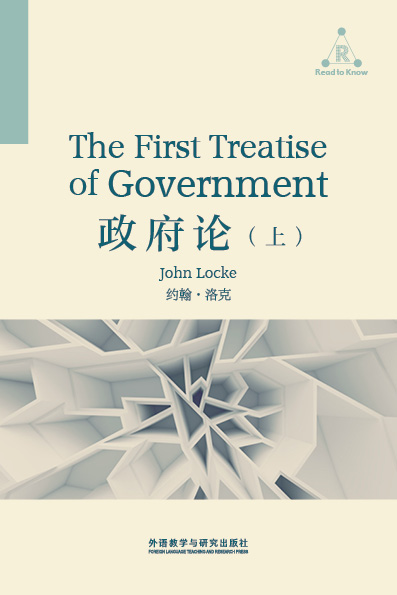近代资产阶级革命的《圣经》,媲美亚里士多德的《政治学》。
《政府论》是洛克最重要的政治论文。《政府论》(上)是对罗伯特·费尼默爵士(Robert Filmer)的《先祖论即论国王之自然权》的反驳。洛克极力并有效地驳斥了费尼默的君权神授的主张。洛克主张政府的权威只能建立在被统治者拥有的基础之上,并且支持社会契约论。不过他也强调社会契约是可以废除的。
Two Treatises of Government, a work of political philosophy by John Locke, attacks patriarchalism in the form of sentence-by-sentence refutation of Robert Filmer's Patriarcha, and outlines Locke's ideas for a more civilized society based on natural rights and contract theory. From this, he goes on to explain the hypothetical rise of property and civilization, in the process explaining that the only legitimate governments are those that have the consent of the people. Therefore, any government that rules without the consent of the people can, in theory, be overthrown.
- 第一章 导读
- 第二章 论父权和王权
- 第三章 论亚当基于神造而享有主权
- 第四章 论亚当基于神赐而享有主权
- 第五章 论亚当因夏娃的从属而享有主权
- 第六章 论亚当因父亲身份而享有主权
- 第七章 论“父权”和“财产权”作为统治权的共同来源
- 第八章 论亚当最高君权的转移
- 第九章 论从亚当继承下来的君主制
- 第十章 论亚当君权的继承者
- 第十一章 继承者是谁?
- Chapter I The First Treatise of Government
- Chapter II Of Paternal and Regal Power
- Chapter III Of Adam's Title to Sovereignty, by Creation
- Chapter IV Of Adam's Title to Sovereignty, by Donation
- Chapter V Of Adam's Title to Sovereignty, by the Subjection of Eve
- Chapter VI Of Adam's Title to Sovereignty, by Fatherhood
- Chapter VII Of Fatherhood and Property Considered Together as Fountains of Sovereignty
- Chapter VIII Of the Conveyance of Adam's Sovereigns Monarchical Power
- Chapter IX Of Monarchy by Inheritance from Adam
- Chapter X Of the Heir to Adam's Monarchical Power
- Chapter XI Who Heir?
- 书评 写书评
- 笔记
-
书评加载中...





















 京公网安备 11010802032529号
京公网安备 11010802032529号
笔记加载中...